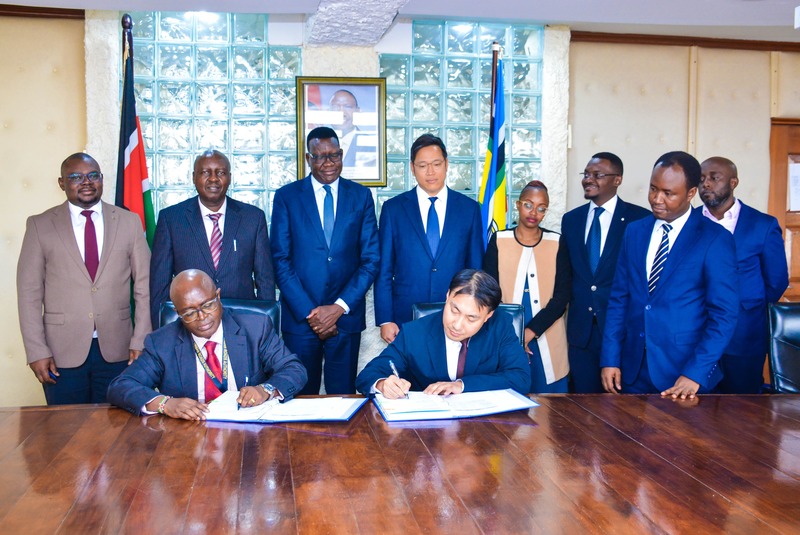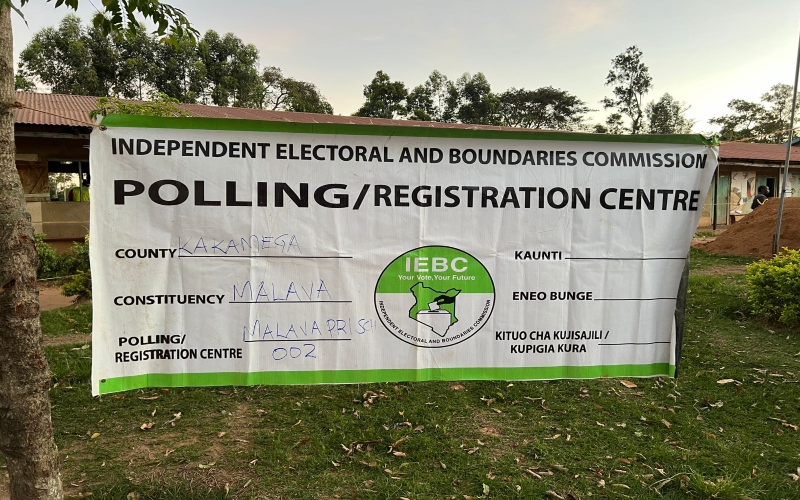Phase one of Sh7.18bn Nairobi Intelligent Traffic System to kick off in March

An ITS applies information and communication technologies to manage road transport and infrastructure. It employs intelligent cameras, variable timing traffic lights, and a central control system to monitor and regulate traffic.
Phase One of Nairobi's Intelligent Transport System (ITS) project and the construction of the Traffic Management Centre (TMC) is scheduled to commence in March 2025, following the signing of a Sh7.18 billion contract between the Kenya Urban Roads Authority (KURA) and Samsung C&T.
The contract signing, which took place on Wednesday, was witnessed by Roads and Transport Cabinet Secretary Davis Chirchir, with KURA’s Director General, Silas Kinoti, signing on behalf of the authority.
More To Read
- KeNHA orders removal of illegal structures, unapproved billboards along highways
- MPs fault State officers over mismanaged road projects
- Senate summons CS Chirchir over 13-year road functions deadlock
- MPs push back against Sh10 million road fund cut per constituency
- Treasury reveals Sh30 billion paid to fund road projects across Kenya
- MPs slam road agencies over billions spent on poorly maintained roads
“I urge you and KURA to implement this project with precision so that Kenyans receive value for the funds invested. I also call on Samsung C&T to ensure the cameras and related infrastructure are amortised to serve the country for many years,” said Chirchir.
“The system you install should be adaptable to integrate with future technologies,” he added.
An ITS applies information and communication technologies to manage road transport and infrastructure. It employs intelligent cameras, variable timing traffic lights, and a central control system to monitor and regulate traffic, thereby reducing reliance on traffic police officers.
The ITS comprises three components: the Advanced Traffic Management System, the Advanced Travel Management System, and the Advanced Traffic Information System.
KURA boss Kinoti pledged to ensure the works commence as planned, saying the project is overdue mainly due to a technical delay in the bidding process.
"I assure the team of total support from KURA and we will all work as a team to the completion of this project," he said.
This project will see expansion and modification of the existing junctions in Nairobi including Moi Avenue/Kenyatta Avenue, Koinange/Kenyatta Avenue, Mbagathi Way/Langata Road, and Limuru Road/Muthaiga Road just to mention a few.
This afternoon, I witnessed the signing of a contract between @KURAroads and Samsung C&T for Phase 1 of Nairobi's Intelligent Transport System (ITS) and the Traffic Management Centre (TMC). This phase includes the geometric improvement of 25 junctions. pic.twitter.com/7W0VRdDuBj
— Davis Chirchir, EGH (@davis_chirchir) November 27, 2024
Traffic congestion
In 2019, the Nairobi Metropolitan Area Transport Authority (NAMATA) reported that traffic congestion in Nairobi costs Kenya approximately $1 billion annually, ranking it as the world's fourth most congested city.
The report highlighted that while the majority of transport relies on public service vehicles, the sector faces significant challenges that hinder Kenya’s economic growth.
As a result, in November 2020, former President Uhuru Kenyatta directed KURA to construct a Traffic Management Centre at City Cabanas to alleviate congestion on key roads.
He also announced plans to redesign and signalise 25 intersections, establish 100 new road junctions, and construct the Traffic Management Centre.
“The control centre will utilise traffic cameras and sensors to harmonise location data, providing synchronised signals at 100 new junctions in addition to existing traffic lights,” said Kenyatta.
In May 2023, KURA invited bidders to apply for the Sh8.4 billion tender for Phase One of the Nairobi ITS project. KURA disclosed that Kenya had secured a Sh8.4 billion loan from the Export-Import Bank of Korea, which will fund Phase One of the project.
This phase will include detailed design implementation, civil works to rehabilitate and enhance 25 junctions to accommodate traffic demand, and the installation of CCTV cameras, vehicle detection systems, and a communication network.
The second phase will focus on upgrading junctions and installing ITS facilities at 81 additional intersections across the city.
In February 2024, the Cabinet approved the implementation of the third phase of the Nairobi ITS establishment and Junction Improvement Project, aimed at further reducing traffic congestion in the city.
A pilot project conducted on two city roads and 10 junctions along Ring Road and Ngong Road demonstrated significant traffic improvements, minimising the need for traffic police presence.
Top Stories Today
















































